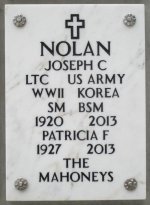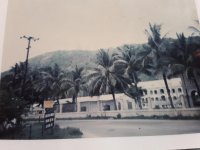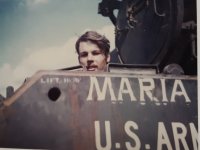SF Vet - what type of medicine did you land on when you decided to go that route ?
Lobo - what did you do after your service to our country ?
BTW - I appreciated your very well laid out, compare and contrast of the different roles in country.
I am 59 YO and I can't wrap my head around what you, SF Vet and others went through at such a young age. My skull hadn't even hardened at 22. I know I would have been a hard to manage knucklehead because I really wasn't capable of taking anything seriously at that age. I guess I would have had to grow up fast.
Replied to the personal questions via PM. Thanks for your comments. Of more general interest to this discussion:
About half of Army troops of that time period were draftees, typically 18 to 23 years old (the older ones usually those who had student deferments for college), 2-year active duty commitment, and the opportunity to extend the 1-year Vietnam tour by 6 months in exchange for an early discharge. Lots of the younger guys were pursuing GI Bill education benefits so they could afford college after military service.
New officers were mostly recent ROTC college graduates, 22 to 24 years old, reserve commissions. Some were military academy graduates (regular army commissions) on a career path. A few were prior enlisted service, either OCS (officer candidate school) grads or direct commissions. In field operations and around the smaller fire and support bases we seldom saw senior personnel (officers above captain, NCOs above staff sergeant), and very few more than about 25 years old. Occasionally a field grade officer (major, lieutenant colonel, or colonel) might show up, inspection tours, command consultations, maybe nothing more than an excuse to get out of HQ for a day or two, photo op shaking hands for the reporters, eating C-rations with the boys, or passing out medals, whatever.
Many of our senior NCOs were WW2 or Korea veterans, working on retirement at 30 years or so for maximum pension. The officers (regular army and reserve) had their own social structures, and the West Point grads were known for looking after each others' career interests. Relatively little personal interaction between officers and enlisted ranks (especially junior enlisted). In addition, there were warrant officers, many with years of enlisted service and specialized training in technical fields such as aviation, engineering specialties, communications, skilled maintenance, etc (really the best of both, all the perks of being an officer but with little or no command functions).
The general wisdom in the Army was that for every soldier at the sharp end of the stick (combat arms units like infantry, artillery, combat aviation, cavalry/tanks) it takes about a dozen troops in support roles to complete any mission. All are essential, and no one in a combat theater is immune to the war. More than a few cooks, clerks, truck drivers, and supply troops were seen with combat awards (Purple Heart and combat valor awards).
By 1972 there was a RIF in progress (Reduction in Force). In the non-commissioned officer ranks the rule was "up or out", with those who had not passed promotion boards within certain time constraints facing discharge or early retirements. In the officer ranks many with reserve commissions were released from active duty (some choosing to remain as non-commissioned officers, some transferred to reserve components). Many active duty ranks were considered "temporary", with a "permanent rank" applicable in the event of a RIF. As a corporal my permanent rank was PFC, as a sergeant my permanent rank was corporal. Lots of reserve lieutenants and captains had permanent ranks of sergeant or staff sergeant.
A RIF was a tough time for lots of soldiers. Imagine committing yourself to a 20 or 30 year career and rising to (essentially) a middle-management position of some comfort and security, perhaps 12 or 15 years completed, then finding out that your slot would no longer exist. I personally knew an excellent staff sergeant who had several years service as an officer, rising to captain before the RIF, and a very good captain who had served as a lieutenant colonel in Korea after a few years of enlisted service before separating and going to college, then returning to active duty during Vietnam.
Different times. Young people put in tough situations. Occasionally "babies leading babies" could have applied.








